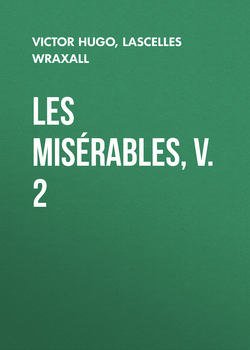Читать книгу Les Misérables, v. 2 - Victor Hugo, Clara Inés Bravo Villarreal - Страница 11
BOOK I
WATERLOO
CHAPTER XI
BÜLOW TO THE RESCUE
ОглавлениеEverybody knows Napoleon's awful mistake; Grouchy expected, Blücher coming up, death instead of life. Destiny has such turnings as this: men anticipate the throne of the world, and perceive St. Helena. If the little shepherd who served as guide to Bülow, Blücher's lieutenant, had advised him to debouche from the forest above Frischemont, instead of below Plancenoit, the form of the 19th century would have been different, for Napoleon would have won the battle of Waterloo. By any other road than that below Plancenoit the Prussian army would have come upon a ravine impassable by artillery, and Bülow would not have arrived. Now one hour's delay – the Prussian general Muffling declares it – and Blücher would not have found Wellington erect, – "the battle was lost." It was high time, as we see, for Bülow to arrive, and as it was he had been greatly delayed. He had bivouacked at Dion-le-Mont and started at daybreak but the roads were impracticable, and his divisions stuck in the mud. The ruts came up to the axle-tree of the guns; moreover, he was compelled to cross the Dyle by the narrow bridge of Wavre: the street leading to the bridge had been burned by the French, and artillery train and limbers, which could not pass between two rows of blazing houses, were compelled to wait till the fire was extinguished. By mid-day Bülow's vanguard had scarce reached Chapelle Saint Lambert.
Had the action begun two hours sooner, it would have been over at four o'clock, and Blücher would have fallen upon the battle gained by Napoleon. At mid-day, the Emperor had been the first to notice through his telescope, on the extreme horizon, something which fixed his attention, and he said, "I see over there a cloud which appears to me to be troops." Then he asked the Duke of Dalmatia, "Soult, what do you see in the direction of Chapelle Saint Lambert?" The Marshal, after looking through his telescope, replied, "Four or five thousand men, Sire." It was evidently Grouchy; still they remained motionless in the mist. All the staff examined the cloud pointed out by the Emperor, and some said, "They are columns halting;" but the majority were of opinion that they were trees. The truth is that the cloud did not move, and the Emperor detached Doncoul's division of light cavalry to reconnoitre in the direction of this dark point.
Bülow, in fact, had not stirred, for his vanguard was very weak and could effect nothing. He was obliged to wait for the main body of the army, and had orders to concentrate his troops before forming line; but at five o'clock, Blücher, seeing Wellington's danger, ordered Bülow to attack, and employed the remarkable phrase, "We must let the English army breathe." A short time after, Losthin's, Hiller's, Hacke's, and Ryssel's brigades deployed in front of Lobau's corps, the cavalry of Prince William of Prussia debouched from the Bois de Paris, Plancenoit was in flames, and the Prussian cannon-balls began pouring even upon the ranks of the guard held in reserve behind Napoleon.
